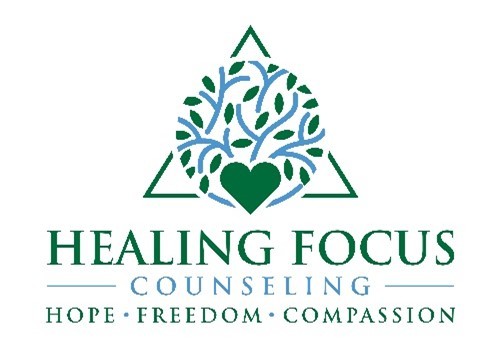Understanding the Symptoms of Clinical Depression and the Importance of Therapy

Understanding the Symptoms of Clinical Depression and the Importance of Therapy
How do you know if you are clinically depressed or just going through a sad point in life? There are several types of clinical depression. Not only that but it shows up differently in each person. The staff at Healing Focus Counseling continue to seek education on this critical topic. Clinical depression is a complex mental health condition that affects millions of people worldwide. To effectively address this significant issue, it is crucial to recognize the symptoms of depression and understand how they manifest in everyday life. Seeking therapy can provide valuable support and guidance for individuals struggling with depression. In this blog, we will explore the symptoms of clinical depression, examine their impact on daily life, and discuss the benefits of therapy in managing this condition.
I. Symptoms of Clinical Depression
Clinical depression encompasses a range of symptoms, which can vary in intensity and duration for each person. The following symptoms are commonly associated with depression:
1. Persistent sadness or a low mood: Individuals with depression often experience an overwhelming feeling of persistent sadness that can linger for weeks or even months.
2. Loss of interest or pleasure: A marked decrease in interest or pleasure in activities that were once enjoyed is a typical sign of depression. Hobbies, social interactions, and previously enjoyable experiences may no longer hold appeal.
3. Fatigue and lack of energy: People with depression often feel constantly tired and lack the energy to perform daily tasks. Simple activities may become exhausting and challenging.
4. Changes in sleep patterns: Depression can disrupt sleep, leading to insomnia or excessive sleepiness. Insomnia can manifest as difficulty falling asleep, staying asleep, or waking up too early.
5. Changes in appetite and weight: Depression can cause significant appetite changes, leading to either weight gain or weight loss. Some individuals may experience a loss of appetite, while others may turn to food for comfort.
6. Difficulty concentrating: Depression can impair cognitive function, making it challenging to concentrate, make decisions, or remember details. This can impact work or academic performance.
7. Feelings of worthlessness or excessive guilt: Individuals with depression often experience intense feelings of worthlessness, self-blame, or guilt, even for minor issues.
II. Impact on Day-to-Day Life
Depression can significantly affect an individual’s day-to-day life, making even simple tasks seem overwhelming. The symptoms mentioned earlier can manifest in various ways, including:
1. Impaired work or academic performance: Difficulty concentrating, lack of motivation, and decreased energy levels can impact one’s ability to meet deadlines, complete tasks efficiently, or perform to their usual standard.
2. Social withdrawal: Depression may lead to social isolation as individuals may lose interest in socializing, experience feelings of self-doubt, or worry about being a burden to others.
3. Neglect of personal hygiene: A lack of energy and motivation can result in neglecting personal grooming habits, such as showering regularly, brushing teeth, or maintaining a neat appearance.
4. Disrupted relationships: The emotional burden of depression can strain relationships with family, friends, and romantic partners. Communication may become strained, and individuals might withdraw from social interactions.
5. Increased risk of substance abuse: Some individuals may turn to alcohol or drugs as a means of self-medication or coping with depressive symptoms, which can further exacerbate the condition.
III. The Importance of Therapy
Therapy plays a crucial role in the treatment of clinical depression. While medication may be prescribed in some cases, therapy provides individuals with the tools and support they need to manage and overcome depression in the long term. Some benefits of therapy include:
1. Professional guidance: Therapists are trained to help individuals explore their emotions, identify negative thought patterns, and develop coping strategies to navigate through depressive episodes.
2. Emotional support: Therapy provides a safe and non-judgmental space for individuals to express their feelings, fears, and concerns. The therapeutic relationship can offer a vital source of support during difficult times.
3. Cognitive-behavioral techniques: Therapists often employ evidence-based techniques, such as cognitive-behavioral therapy (CBT), to help individuals challenge negative thoughts, develop healthier beliefs, and modify behaviors contributing to their depression.
4. Coping skills: Therapy equips individuals with practical coping skills to manage stress, regulate emotions, improve self-care, and enhance resilience, empowering them to better navigate their day-to-day life.
There is hope. Recognizing the symptoms of clinical depression and understanding their impact on daily life is crucial for seeking appropriate help. Therapy provides invaluable support and guidance on the journey to recovery. When you or someone you care about needs therapeutic help, please give Healing Focus Counseling a call at 801-679-3932 or go to our website www.healingfocuscounseling.com
References:
1. American Psychiatric Association. (2013). Diagnostic and statistical manual of mental disorders (5th ed.).
2. Mayo Clinic. (2021). Depression (major depressive disorder). Retrieved from https://www.mayoclinic.org/diseases-conditions/depression/symptoms-causes/syc-20356007
